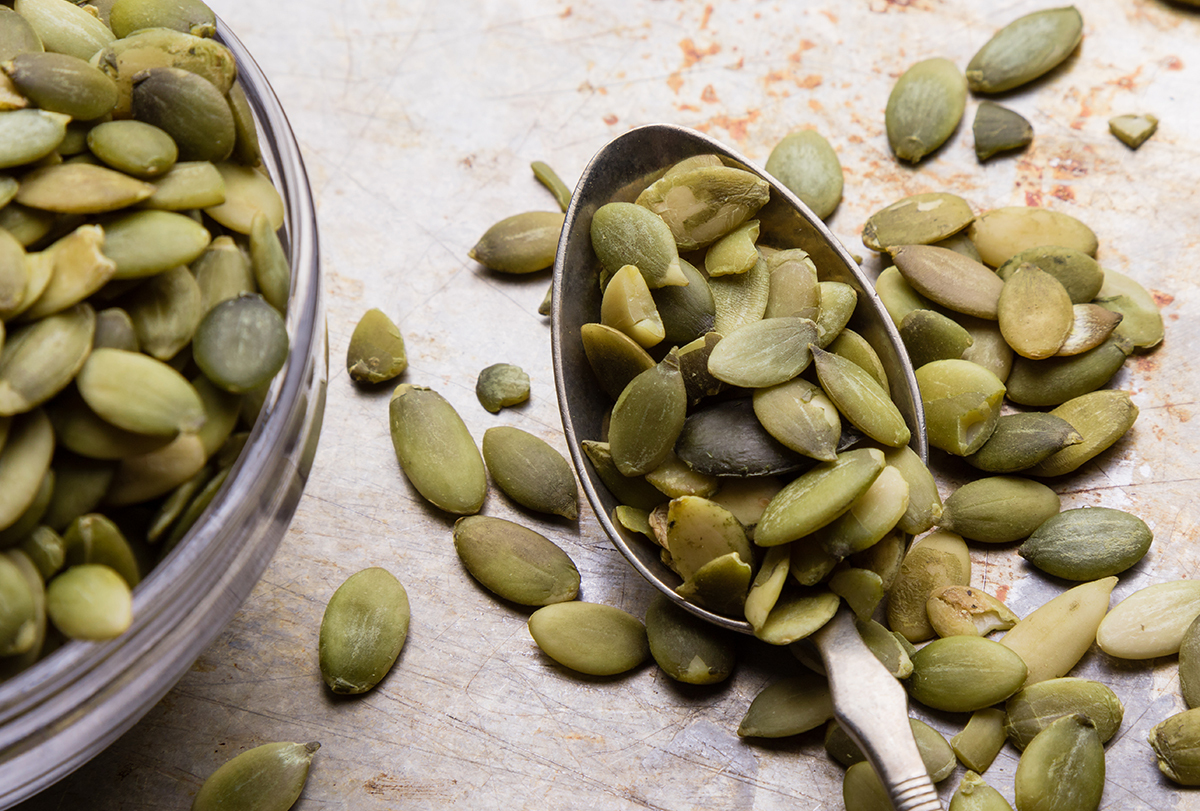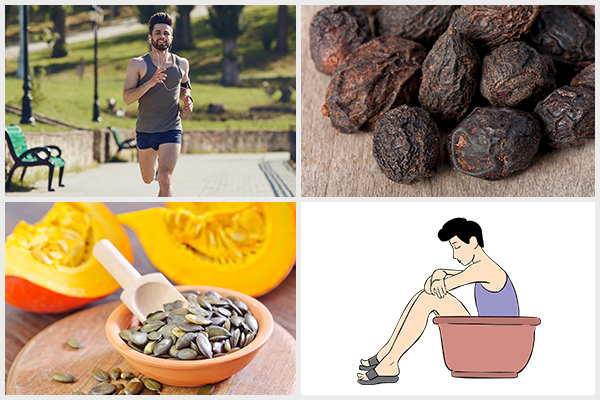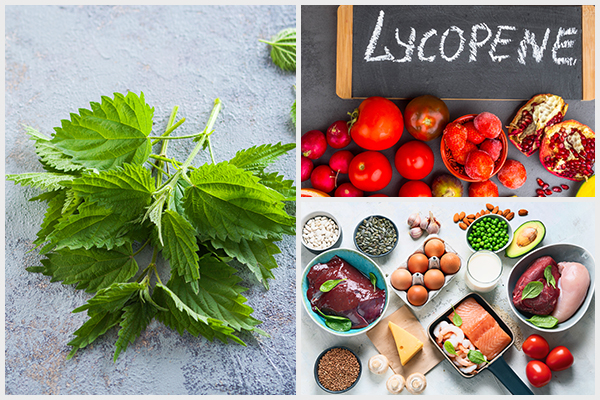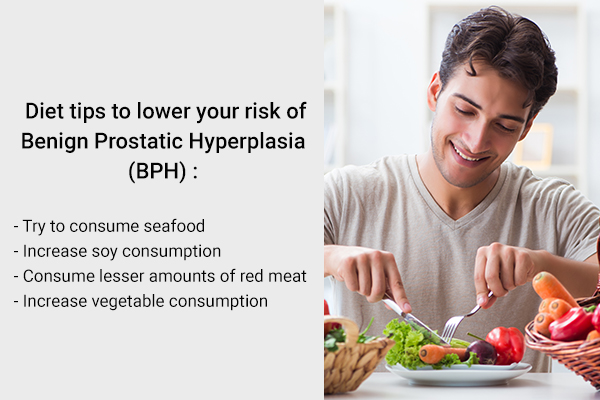In this article:
The prostate gland is a small organ present in males. It’s the size of a walnut and is responsible for the production of ejaculatory fluid. (1) The urethra is present in the center of the prostate gland. Hence, any enlargement or inflammation in the prostate tissue can affect urination.

As men age, they experience increased levels of DHT (dihydrotestosterone) production in their body. This DHT starts accumulating and may lead to enlarged or swollen prostate glands as DHT can cause inflammation. (2)
This condition is medically known as Benign Prostatic Hyperplasia (BHP) which is non-cancerous and can cause frequent urination, decreased urine output, etc.
BHP is different from prostate cancer even though it shares similar symptoms.
Symptoms of BHP:
The symptoms of BHP can mimic bladder issues. Common symptoms include:
- Weak urine stream
- Frequent urination
- Urgent urination
- Dribbling or urine leaks
- Complete urinary retention
- Nocturia
- Impartial emptying of bladder
The exact cause of BHP is unknown but it may be related to hormone changes due to aging or other factors. (2) Hence, it is necessary to get yourself screened and consult a doctor for a proper diagnosis before attempting any home remedies.
Home Remedies for Enlarged Prostate
An enlarged prostate can cause difficulty urinating and may also cause pain in some cases. Here are a few tips and remedies you can try to reduce the severity of your symptoms:
1. Perform the following exercises
If you are above 50 years of age, you should start exercising regularly.
Some studies suggest that exercising regularly can help reduce your risk of developing BPH as you age. According to some studies, physically active men were also at lowered risk of urinary tract infections. (3)
Exercising regularly can help control your body weight, reduce inflammation, and improve blood circulation.
a. Include aerobic exercise
Aerobic exercises are good for your heart as well as sexual health. Try to include 30 minutes of aerobic exercises such as jogging, swimming, cycling, etc. in your daily routine.
b. Include exercises that increase the release of antioxidants
Exercises that help increase endurance are known as ‘antioxidant exercises’. They help increase antioxidant levels in the body. eg: swimming, running, etc.
c. Do interval training
Increased belly fat is a high-risk factor for BPH. (4) Try to include short periods of different exercises such as running, weight lifting, squats, etc. to reduce belly fat.
d. Do kegel exercises
Kegel exercises are beneficial in reducing both the risk of developing BPH as well reduce severity of symptoms. Squeeze the muscles that you would use to urinate and hold them in that position for 10 seconds before releasing.
2. Try using Saw Palmetto
Saw Palm is an ancient Native American remedy for an enlarged prostate. Saw Palm berries contain hormone balancing compounds that help prevent the conversion of testosterone to DHT. This helps reduce inflammation and has a similar effect to Finasteride (a drug used to prevent DHT formation). (5)
You can consume Saw Palmetto extract capsules every day.

3. Consume pumpkin seeds
A 2017 study on men suffering from BPH showed improvement in symptoms after treatment with pumpkin seed extract for 12 weeks. (6)
You can use pumpkin seed extract or directly consume the seeds as a snack.
A handful a day should be enough to help decrease inflammation. You can also boil crushed pumpkin seeds in some water. Strain this tea and drink it once a day.
4. Take a Sitz bath
A sitz bath helps soothe the muscles and decreases inflammation or pain in any part of the body. (7)
Fill a bathtub with warm water and add half a cup or three tablespoons of Epsom salt to it. Soak in his bath for 20–25 minutes before washing off with normal water. Repeat twice a week for best results.
5. Drink stinging nettle tea
Stinging nettle leaves are another traditional remedy for enlarged prostate. (8) They can decrease inflammation by increasing urination and expulsion of inflammatory agents from the body via urine. It also has potent antioxidant and anti-inflammatory properties.
You can boil a teaspoon or two of dried nettle leaves with a cup of water. Strain and drink this tea on alternative days.
6. Incorporate lycopene-rich foods in your diet
Lycopene is a phytochemical naturally found in red or pink fruits such as tomatoes.
A recent study proved that consuming 15 mg lycopene extract for 6 months helped reduce inflammation and prostate enlargement in men suffering from BPH. (9)
You can increase lycopene content in your diet by eating more pink or red fruits and vegetables. Fun fact: lycopene is fat-soluble and its availability does not decrease on cooking – unlike other nutrients. You can also ask your doctor whether you can take lycopene supplements.

7. Take zinc supplements
Zinc is an essential micronutrient that helps improve your body’s immune response and control inflammation. It is naturally present in the prostate glands and has an anti-inflammatory role.
Some studies suggest that zinc deficiency may be a reason for inflammation and enlargement of the prostate glands in older men. You can increase your consumption of zinc-rich foods such as crabs, oysters, cashews, yogurt, etc. You may also consult your doctor for a zinc supplement. (10)
Lifestyle Changes That Can Help
Some simple changes in behavior that can improve your condition are:
- Try to pee as soon as you get the urge to urinate.
- Follow a timed bathroom schedule if possible.
- Limit fluid consumption to 2 liters per day.
- Avoid bladder irritants such as alcohol and caffeinated drinks.
- Try to maintain a normal Body Mass Index (BMI).
Dietary Tips to Prevent Enlarged Prostate
As you may have noticed, proper nutrition is essential for a healthy life and may go a long way in decreasing health issues that come with age.
Here are a few dietary tips you can follow to decrease your risk of developing BPH:

- Try to consume seafood once or twice a week. Tuna, salmon, mackerel, etc. are all rich in omega-3 fatty acids and are good antioxidant foods.
- Increase soy consumption as it helps decrease DHT production.
- Consume lesser amounts of red meat.
- Increase vegetable consumption, specifically: red bell peppers, broccoli, tomatoes, cauliflower, etc.
ALSO READ: 14 Best Men’s Health Blogs and Websites
Most-Asked Questions
How is diagnosis made usually?
Diagnosis is based primarily on digital rectal examination and symptoms; cystoscopy, transrectal ultrasonography, urodynamics, or other imaging studies may also be needed.
How do doctors treat BHP?
Doctors can treat BHP by prescribing medications such as 5α- reductase inhibitors and α-blockers to reduce enlargement and inflammation. Some cases may require surgery.
Final Word
If you or anyone you know is suffering from an enlarged prostate, it is best to consult a doctor for a proper diagnosis before starting any home treatments.
- Was this article helpful?
- YES, THANKS!NOT REALLY


